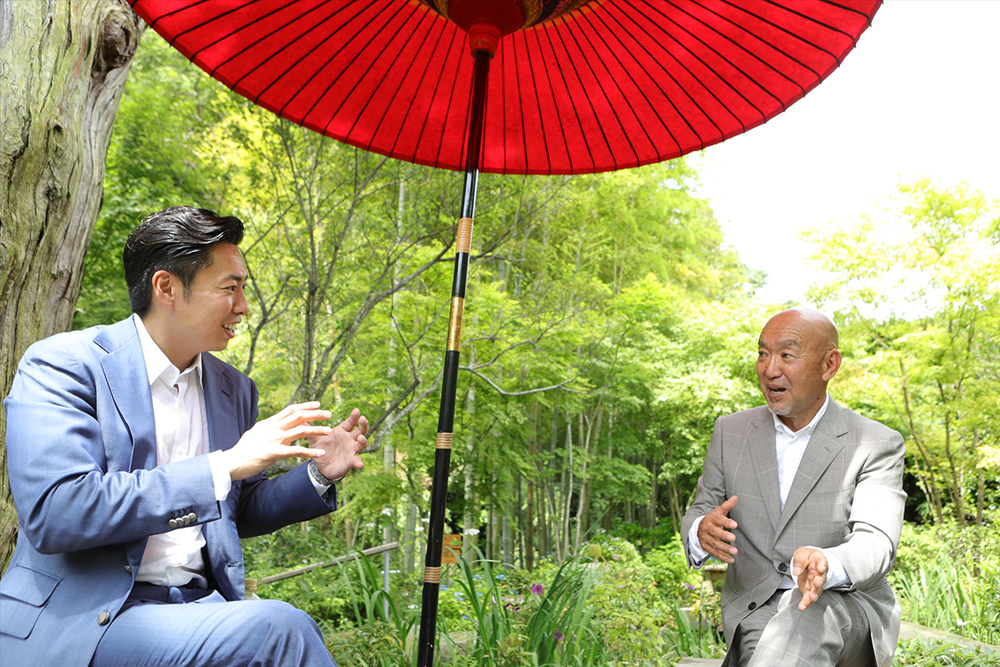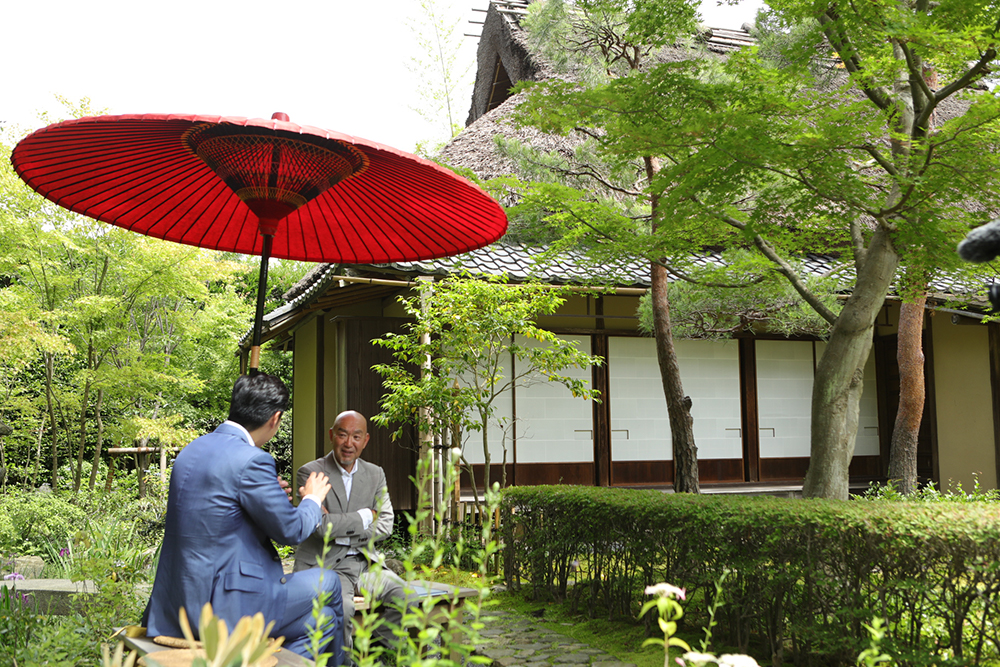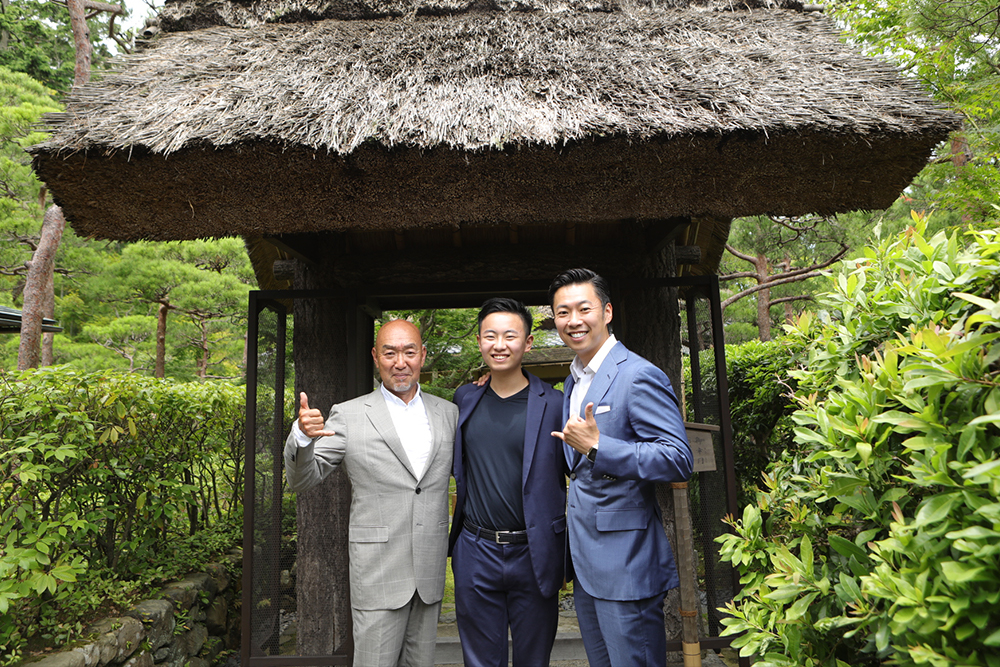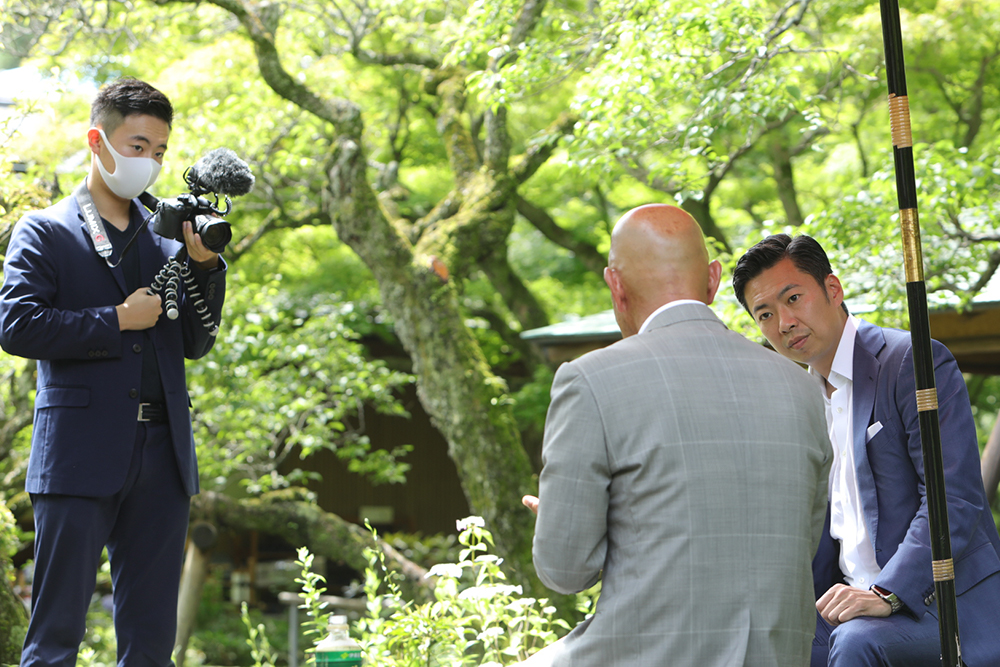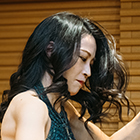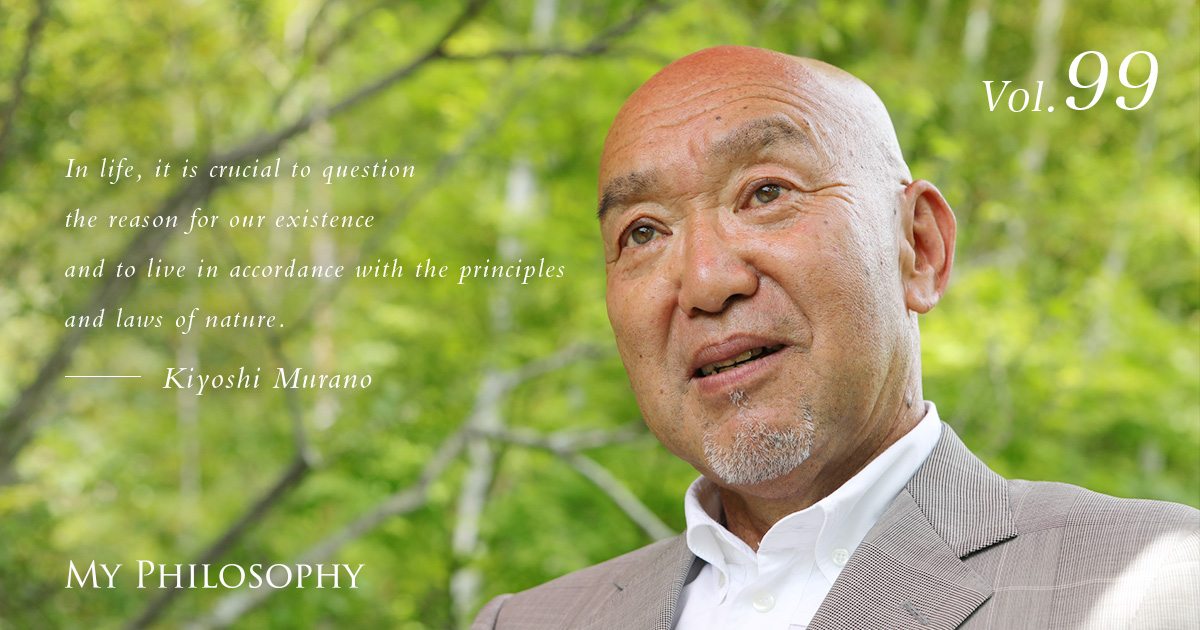
Mr. Ikusei Murano emphasizes the importance of everyone pondering "Why was I born?" and the spirit of "Taigi," which the Japanese have cherished. He shared his insights on navigating the era ahead, especially in light of the life-altering impact of the COVID-19 pandemic.
Profile
Vol.99 Kiyoshi Murano
Philosopher and Astronomer | Futurist
Born in 1949, from Tokyo. Graduated from the College of Art at Nihon University and completed his postgraduate studies at Kokugakuin University. He was awarded the Shinto priesthood rank of "Seikai." Afterward, he underwent training at the Nogi Shrine in Minato-ku, Tokyo. He became the first president of the Nippon Student Surfing Association and won both the team and individual overall championships at the 1st All Nippon Japan Student Surfing Championships. Following his tenure as president of "Kona Winds," a company dealing with surfing-related products, and president of a television production company, he now works as a researcher dedicated to conveying the philosophy of astronomy.
Encountering Philosophical Astronomy
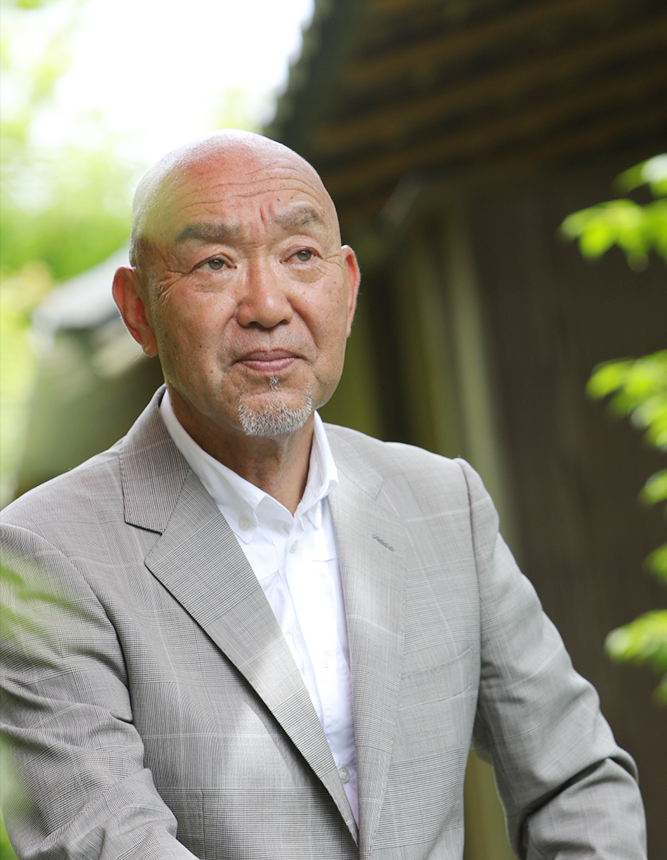
During the era of Japan-US Security Treaty Japan’s security struggle, , I was 19 years old and utterly fascinated by surfing. Listening to surfing music, I wanted to know how America had elevated surfing, which came from Polynesia, into music and created a culture around it. I also wanted to see America, which Japan had lost to in the war, so I set off for Los Angeles and Hawaii. What struck me most there was pondering how Japan, having lost to America, would move forward. Why were we stripped of swords and bows and subjected to atomic bombings? How should I live my life from here on? It was during this time of contemplation that I met Professor Izumi Seki of “Philosophical Astronomy.”
Upon returning from America, I was uncertain about what I wanted to do. I lived a restless life, buying surfboards in Hawaii to sell for a profit, and then using that money to travel back to Hawaii. At the age of 24, it suddenly occurred to me that this wasn’t the way to live. I decided to study Japanese culture, enrolling in the Shinto studies program at Kokugakuin University Graduate School, where I earned my qualification as a Shinto priest. Having been raised with Christianity due to my mother’s faith, I was familiar with Christianity from childhood. Through the teachings of Philosophical Astronomy, I embraced Buddhism and Shinto, incorporating three religions into my belief system.
Later, believing Professor Seki’s advice that “turning your hobby into your profession will make you positive,” I joined Japan’s oldest surfboard manufacturer. However, when that company shut down its business, I decided to start my own business. Upon consulting the professor, he suggested several dates, advising, “Talk to your father on this day. It’s a good day for you, and you’re likely to gain his understanding.” Following his advice, my father encouraged me to “go for it,” thus supporting my entrepreneurial venture.
The Necessity of Philosophy

Whether it was good timing or not, in about six years, I generated sales of approximately 1 billion yen. In the ninth year, when things were at their peak, I ignored Mr. Izumi’s advice that “next year, you could halve the company or even sell it,” and instead, I poured profits into the surfing fashion sector. Unfortunately, the trend shifted towards DC brands. Ignoring the fundamentals and only listening to the positive aspects of the advice led to a massive failure. At 38, I dissolved my business and formally became a disciple of Mr. Izumi to study philosophical astronomy in earnest.
“Philosophy” is defined in the dictionary as “philosophical reasoning,” referring to the philosophical truths of life. Philosophical astronomy involves discovering the relationship between the movements of stars, the sun, the moon, the calendar derived from these movements, and fate. Just as the high tide brings plankton ashore, leading to the birth of mammals, gravitational forces influence the birth of life. Babies are often born at high tide, death is more common at low tide, and the menstrual cycle of women is related to the moon’s orbit, indicating that the human body is influenced by the mechanisms of the universe.
Philosophy is emphasized because studying it not only lays the foundation for all other fields of study but also equips individuals with the skills to tackle business and unresolved issues, fostering highly adaptable thinking. Profitability is not the only measure of success; serving others is. In the future, companies and managers with a philosophical foundation are the ones who will survive.
I Think, Therefore I Am

It’s essential for individuals to question why they were born to their specific parents, understanding the familial equations that involve parent-child and sibling relationships. Humans are often compared to trees such as pines, cedars, or cacti. When a pine marries another pine and is planted in a sunny location, it can grow as a fine pine for hundreds of years. However, if a cedar male marries a cactus female and is planted in a sandbox, that cedar will not thrive. Therefore, the person you partner with and your DNA are crucial. DNA represents the history our ancestors have traversed, and in philosophical astronomy, DNA or our roots are given significant importance.
Knowing one’s roots and contemplating what one should do in life, acting according to the laws of nature and fundamental principles, is what Buddha meant by “living naturally.” Acting for the benefit of future generations will positively affect one’s own later years. Currently, Japan’s most significant issue is its declining birthrate, with fewer children to carry forward our precious culture. This also indicates that Japan may face challenges in progressing further.
Reflecting on “Taigi” (Greater Purpose)
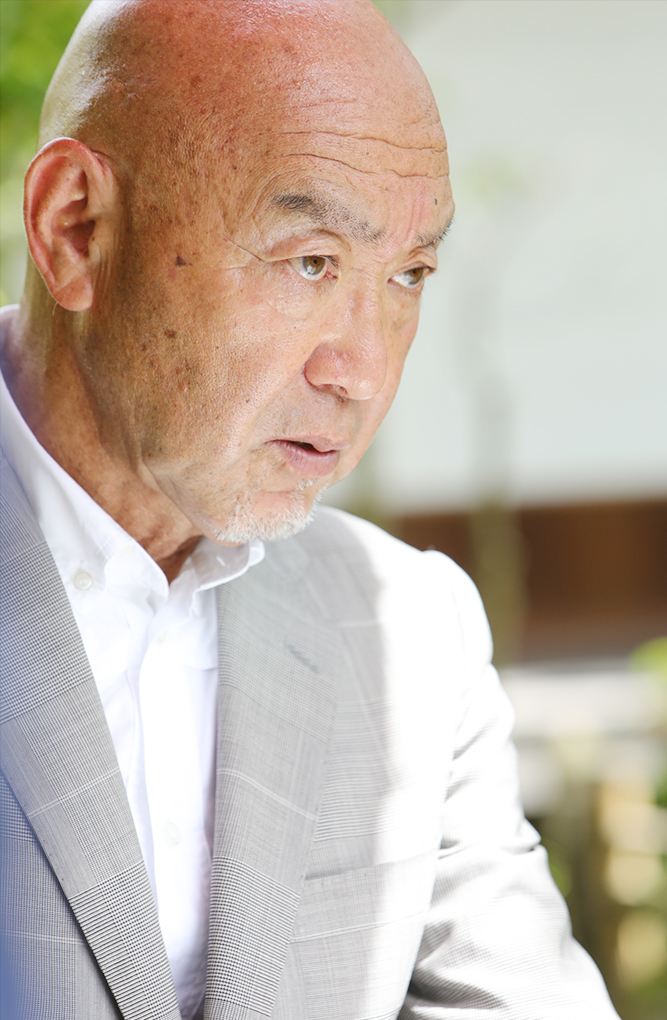
Post-war Japan embraced American democracy, prioritizing economic prosperity and, in the process, the “spirit of the Japanese” was usurped. The COVID-19 pandemic has made it clear that both Japanese politicians and people worldwide have adopted the mindset that simply being alive is all that matters, losing sight of values beyond the sanctity of life. The Japanese spirit of bonding with parents, Taigi, and sacrificing for others has become dulled. During wartime, 16 and 17-year-old kamikaze pilots plunged into enemy ships for their families and Japan. When Americans questioned their sanity, I felt a deep mistrust. While foreigners might see it as a dangerous ideology, Japan harbors a culture where dying for a cause is considered a greater purpose than living.
I introduce a part of Yukio Mishima’s statement:”We Japanese, dazzled by post-war economic prosperity, have forgotten the essence of our nation, lost our national spirit, focused on trivialities, succumbed to expediency and mediocrity, and felt our souls fall into a void, questioning: Is it enough to respect life even if the soul dies? We want to cherish values beyond the respect for life.” Humans are not strong enough to live and die solely for themselves. We are creatures who ponder, “For what purpose do I live?” Living only for oneself eventually leads to boredom, and the desire to make one’s death meaningful for the world or someone inevitably arises – that is “Taigi.” When young, it’s crucial to take the time to consider why you were born, what Taigi means, and to study the philosophy that there are things more important than merely living.
Body, Speech, and Mind in Harmony
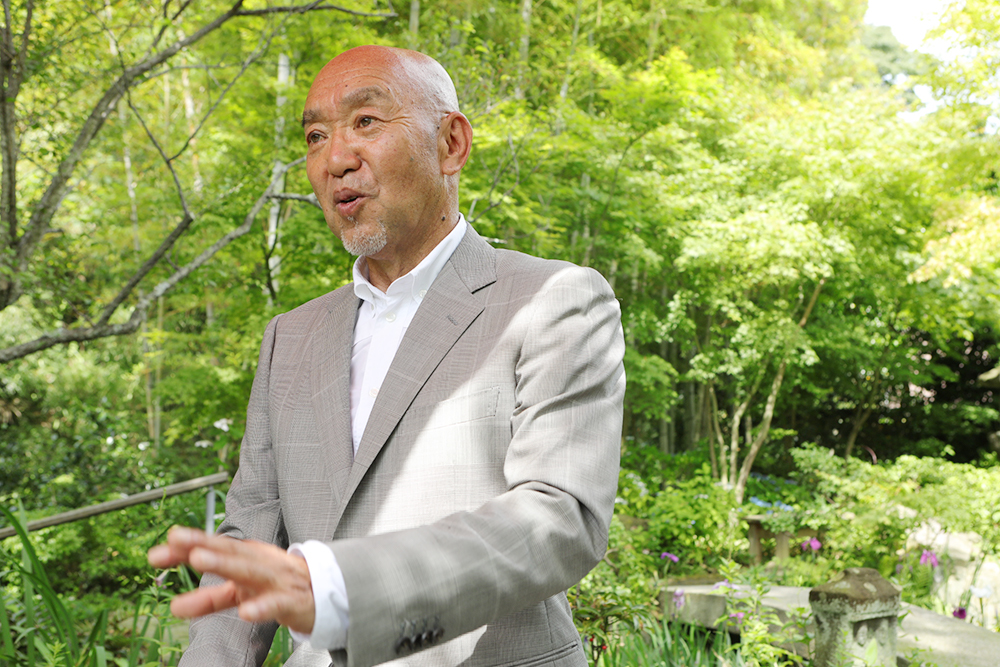
In the era changed by COVID-19, to survive and maintain a peaceful mind, I want to share the teachings of Esoteric Shingon Buddhism: “Body, Speech, and Mind in Harmony.” “Body in Harmony” involves reflecting on one’s actions, discerning what is truly important, practicing actions that protect human lives, purifying oneself, and refraining from selfish behaviors. “Speech in Harmony” is about reconsidering one’s words, contemplating their righteousness, and expressing gratitude. “Mind in Harmony” means observing and correcting the fluctuations and movements of one’s mind, touching the depths of one’s being, considering others, and recognizing them with care. It involves breathing deeply, feeling a unity with the sky and the earth, and steadfastly adhering to principles.
Esoteric Shingon Buddhism teaches that everything in the world operates through the work of Mahavairocana Buddha, and through the functions of body, speech, and mind, one strives to become one with the Buddha. Mahavairocana Buddha symbolizes seeing the world as it is, coming from a buddha realm. Believing in the Buddha’s compassion and striving to know one’s own mind as it is, leads to understanding the truth. I also want to live by the teachings of “Body, Speech, and Mind in Harmony.”
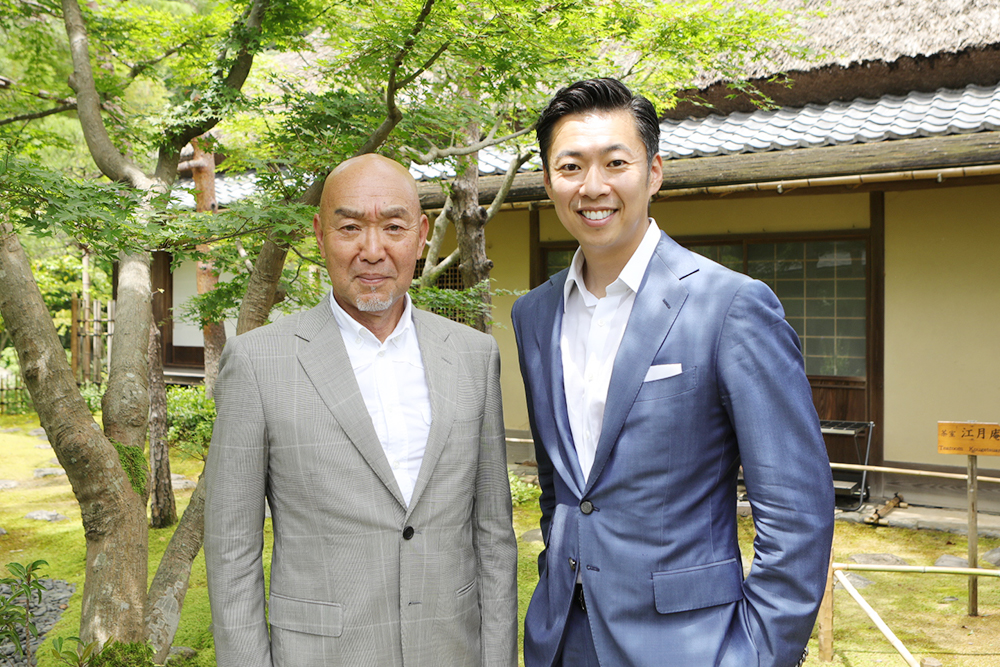
My meeting with Mr. Sugiyama was three years ago in Bali. My first impression was of someone who acted fearlessly, engaging deeply with people he just met without pretense, valuing human connection. Checking his astrological sign in philosophical astronomy, it showed broad knowledge, spiritedness, brightness in world affairs, prosperity, affinity with people, and receiving love from the esteemed. His sign indicated sociability, clarity in social matters, and being cherished by superiors—a reflection of his positive traits.
When interviewed, I also looked into the zodiac sign of his eldest son, who participated as an assistant, and found it matched his father’s. In recent times, it’s often heard that fathers and sons struggle to build good relationships. I look forward to the Sugiyama family continuing the father’s philosophy and progressing positively. Among those Mr. Sugiyama has interviewed, some noted his embodiment of the samurai spirit. The teachings of the Ogasawara school of archery stress the importance to value honor above life. It stresses the importance of honor, ethical sensibility, of honor, ethical sensibility, and decency, principles I hope will root deeply in the Sugiyama family, fostering a wholesome household. Today, Japanese society is trending towards a lack of sensitivity, a concerning path. I hope for experiences of genuine emotion, clear goal-directed actions, and living the teachings written in Mr. Sugiyama’s books.
Philosopher and Astronomer| Futurist
Kiyoshi Murano
Mr. Kiyoshi Murano had predicted in 2018 that the 2020 Olympics might be canceled due to various factors, a prediction realized with the postponement due to COVID-19. He also foresaw Mr. Sugiyama entering an unavoidable state of mental distress after February 2019, which happened, leading to six months of mental health struggles without improvement. Mr. Murano has made many accurate predictions, including potential natural disasters in late 2020, especially earthquakes. He taught the importance of being prepared: “If prepared, no worries.” I’ve bought a generator and a device to produce clean water without electricity, emphasizing the importance of believing in oneself and understanding the laws of nature. “My Philosophy,” is at its 99th edition. Thanks to the individuals featured, I’ve developed my own philosophy. Holding onto a greater purpose and living righteously is what I believe to be most crucial moving forward.
June 2020 in collaboration with Kamakura Ichijo Ekan SansoEdited by DK Sugiyama, Written by Naomi Kusuda, Photography by Akane Inagaki




